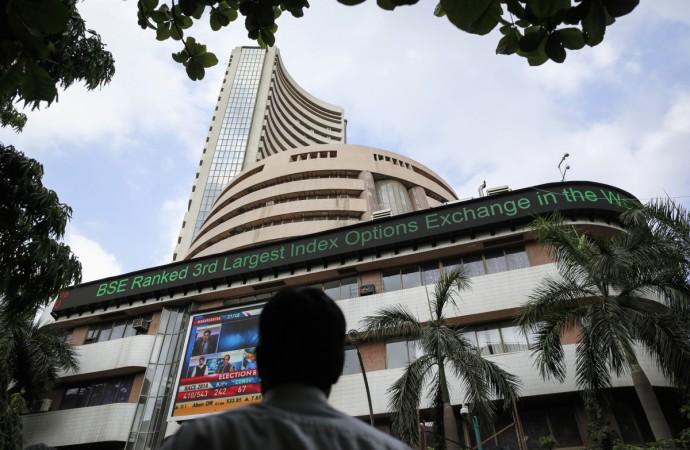
Indian stock markets preferred to follow global cues on Thursday, shrugging off scepticism on the country's December quarter (Q3) data published two days ago. The BSE Sensex and the NSE Nifty hit two-year-high in early trade after the Dow Jones Industrial Average (DJIA) crossed the 21,000-mark for the first time in its history.
The 30-scrip Sensex was trading at 29,004 at around 2.04 pm after hitting an intraday high of 29,145 and was just about 1,000 points away from its all-time high of 30,024 scaled on March 4, 2015.
The Nifty was almost flat at 8,945, down from its intraday high of 8,991. The all-time high for the 50-scrip index is 9,003 recorded on March 3, 2015.
Top index gainers included Tata Steel, Hero Motocorp, HDFC and Bajaj Auto.
Stocks that hit new 52-week high on Thursday included Vedanta, Tata Steel, Mothersumi Systems and GMR Infra.
The rally on US stock markets saw the DJIA crossing the 21,000-mark on Wednesday and gaining 1.46 percent to close at 21,115 after traders cheered US president Donald Trump's first Congressional address that was presumably devoid of any protectionist rhetoric.
"What's really changed on the economic front is tough to say. But the Trump speech moved expectations higher. Now it'll be a surprise if [the Fed doesn't] raise rates," the Marketwatch quoted Ryan Detrick, senior market strategist for LPL Financial.
Market sentiments on Indian stock markets were also buoyed after most of the car-makers reported robust growth in volume sales for February 2017, indicating that demonetisation blues were almost over.
The scepticism over the Narendra Modi government's December quarter (Q3) data that showed the Indian economy expanded by seven percent has apparently failed to have any impact on investors. The mood in India was also boosted by the PMI manufacturing survey for February that rose to 50.7 from 50.4 in January and 49.6 in December last year. A reading below 50 means contraction.

















